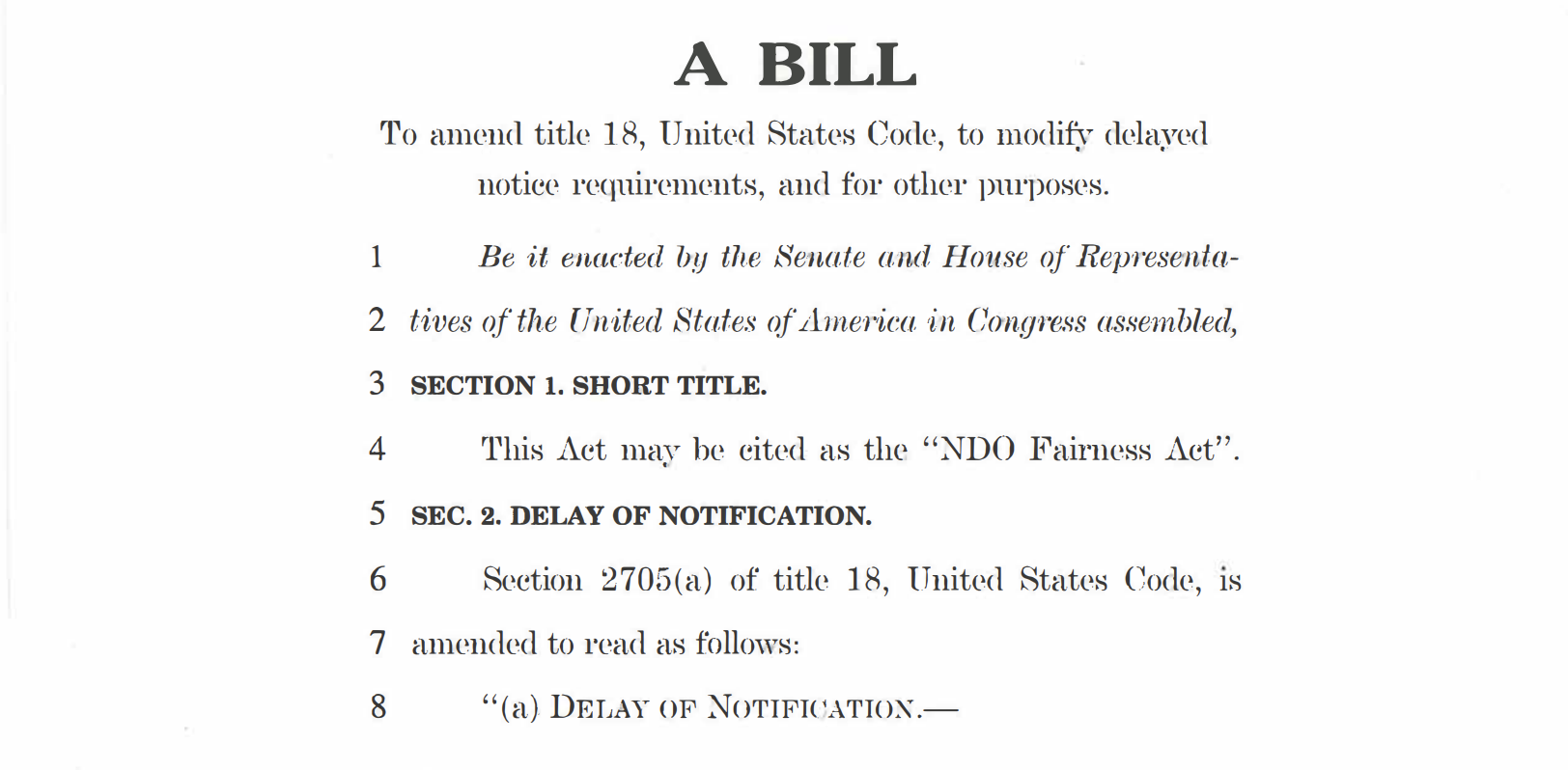|
Sensitive information about our health, financial transactions, and personal relationships can easily be extracted from the cloud. Prosecutors often request a person’s phone calls, emails and other records to gather evidence. Some targets are investigated for prosecution. Many such targets are, however, bystanders caught up in their proximity to an investigation.
When such surveillance occurs, prosecutors often request a Non-Disclosure Order (NDO), which prohibits digital and telecom service providers from notifying their customers about the search. Those who have been investigated will never challenge such an order in court because they will never know it happened. How extensive is this practice? Prosecutors execute electronic search warrants accompanied by non-disclosure orders thousands of times each year. Bob Goodlatte, PPSA Senior Policy Advisor and former Chairman of the House Judiciary Committee, congratulated the current chairman, Rep. Jerry Nadler (D-NY), and Rep. Scott Fitzgerald (R-WI) for introducing the NDO Fairness Act. “As we’ve seen time and again, government will find loopholes in the law and widen them. Chairman Nadler and Rep. Fitzgerald are taking the initiative to close one loophole that has evolved into a serious encroachment of Americans’ privacy. Placing these prosecutorial powers within the guardrail of disclosure would be a major step in protecting our due process rights.” This bill amends the law to require a written determination from a court finding that the non-disclosure order is necessary to prevent a “substantially likely adverse result.” It directs courts to provide strict scrutiny for gag order requests. It limits these gag orders to 30 days, with possible extensions. And it requires notice to be given to a customer within 72 hours of the expiration of the deadline, including details on the information disclosed. Finally, the NDO Fairness Act gives Americans standing to contest a gag order in court. Comments are closed.
|
Categories
All
|


 RSS Feed
RSS Feed